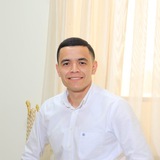tgoop.com/golang_dells/748
Last Update:
Anthropic, two months later
There are those moments when you talk to someone and think to yourself “wow, this person is smart! They will do great things, I should pay attention to them”. Usually those moments are rare, but I had so many of them here. I had some research questions, and in a number of times the answer was in a paper authored by someone at Anthropic. We hear about and celebrate when talented people join from OpenAI, but we are less likely to hear about talent leaving to OpenAI, so I asked John Schulman about this: nope, there was a just one case a while ago when someone left Anthropic for OpenAI. There are a number of examples where a person had a pretty senior title, like Engineering Director, VP or Staff/Principal at another company, leading tens or hundreds of people, and they joined Anthropic as Individual Contributor. Some of them even came back from retirement! Dream team.
High talent density is a massive competitive advantage. Even if a competitor is currently ahead of the game, in the end of the day, at least until AGI, it is the people that make things happen, so they represent the derivative of the company and thus are big factor in the long-term outcome. Talented people in lower-talent-density companies, or low-trust companies not united under one mission, are tempted by the environment to feel special about themselves, and are more likely to eventually start acting in selfish ways, such as growing their headcount for the sake of personal career growth, or practicing promotion-driven development, which ultimately hurts the company performance.
Talent density is sticky. It is hard to beat the sense of belonging when a smart person is surrounded by lots of other smart people, especially when money is not the top motivator. There is no other place I’d rather be at. Therefore, I think this competitive advantage is durable, AKA a moat.
BY Dilmurod Yangiboev | DYDO :)
Share with your friend now:
tgoop.com/golang_dells/748
